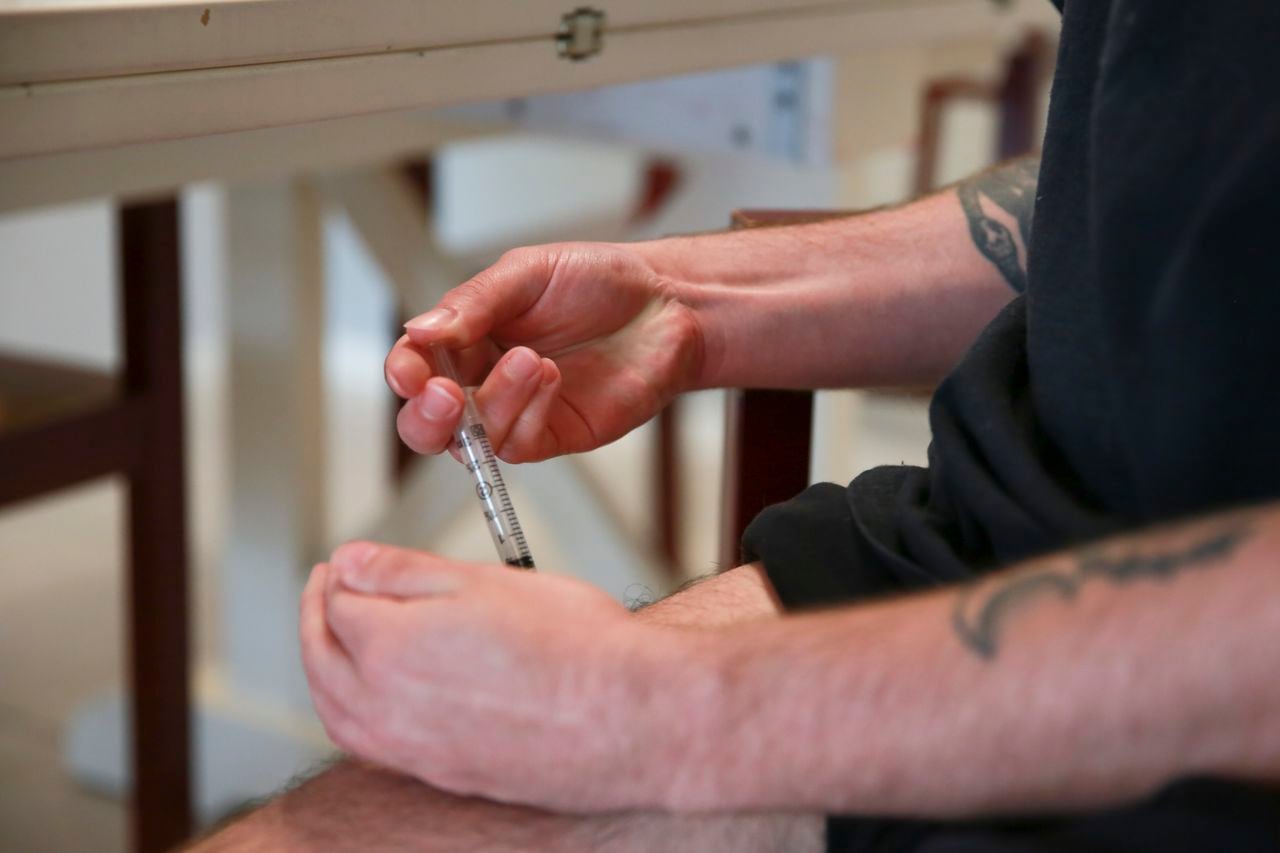
Ohio Governor COLUMBUS – Ohio Gov. Mike DeWine announced on Friday that he had vetoed controversial legislation that would have prohibited trans athletes from participating in women’s high school and college sports and prevented minors from receiving gender-affirming health care.
However, Republican DeWine stated at a press conference that he is directing his administration to draft regulations to outlaw gender-affirming surgeries for minors in Ohio, to gather information on when such procedures are carried out on both children and adults, and to stop “pop-up clinics” from providing such health care. Regulations, which may require a legislative committee’s approval, are more likely to be upheld in court than House Bill 68, he claimed.
DeWine stated during a news conference that he “cannot sign this bill as it is currently written” because parents had warned him that failing to provide gender-affirming care might result in the death of their children. “In the end, I think it’s about preserving human life.”
DeWine claimed that only a “handful” of Ohioans might be impacted by the proposed ban on transgender players participating in women’s sports. According to the Ohio High School Athletic Association, fewer than 15 transgender students use its policy, which requires them to prove they’ve been using hormones for at least a year or to show through reliable medical evidence that they don’t have any physical or physiological advantages over genetic females in the same age group in terms of bone structure, muscle mass, and testosterone.
DeWine’s refusal of House Bill 68 gives the Republican-controlled Ohio General Assembly until the close of 2024 to decide whether or not to override the veto, which necessitates at least 60 out of every 99 House votes and 20 votes from every 33 Senate votes. Given that HB 68 was approved by the House 64-28 in June and the Senate 24-8 on December 13, an override of that legislation is unlikely to be challenged. The GOP-authored bill received a majority of support from both parties.
If a young person is already receiving gender-affirming care in Ohio and their doctor has determined that terminating the minor’s hormone prescription might be harmful, HB68 would permit them to continue receiving that care.
In the form of hormones, major medical associations support gender-affirming care. According to guidelines from the American Psychological Association, medical sexual changes in children are not common. Children’s hospitals, according to DeWine, have expressed concern about the law.
According to the APA, children with gender dysphoria use hormones that block puberty up until the age of 16 to buy time to consider their gender identity. The procedures are reversible.
Youth who identify as male may obtain cross-sex hormones of testosterone and estrogen, as well as an androgen inhibitor, if they are female. According to the APA, these procedures are largely reversible.
Only 1% to 2% of Americans identify as transgender. According to estimates, less than 1% of Ohio’s population identifies as trans.
Policies put in place by academic sport organizations aim to strike a balance between being fair to all athletes and protecting students’ medical privacy. They would be nullified by HB68.
Following DeWine’s news, Lawrence County Republican and Ohio House Speaker Jason Stephens stated in a statement that House Republicans would discuss how to “take the correct next steps” in response to the governor’s veto.
Stephens expressed disappointment over the Governor’s veto of House Bill 68, the SAFE Act, and the Save Women’s Sports Act. “To empower kids and protect children, the bill’s authors and the House have dedicated nearly three years to getting it right.”
A representative of the Ohio Senate Republicans has been contacted by Cleveland.com/The Plain Dealer for comment.
However, DeWine’s veto was praised by congressional Democrats.
House Minority Leader Allison Russo, a Democrat from Upper Arlington, expressed his gratitude to Governor DeWine for taking the time to speak with the people most affected by this unfair policy and to comprehend the fact-based science on this issue. It “sends a much-needed message of support to Ohio’s LGBTQ+ children that they, along with their families, have the essential freedom to feel secure in their own communities and to uphold their parental rights to make the best health decisions for their children.”
Lt. Governor Jon Husted, who is considering running for governor when DeWine is forced to resign due to term limits in 2026, said he supported HB68 on Thursday. “Men shouldn’t participate in women’s sports. When you are a child, you shouldn’t make permanent medical decisions about gender,” Husted wrote on X.
HB68 was originally a bill that prohibited Ohioans under the age of 18 from receiving gender-affirming care, even with their parents’ approval. Transgender girls and women were not allowed to participate in school, middle school, or high school female sports under a separate bill. In June, politicians combined the bills under HB 68.
Groups representing children and athletes have brought lawsuits in
other states with bans, attempting to have those laws repealed. The results have been inconsistent.
The U.S. Supreme Court declined to reinstate the laws in West Virginia, where a sports ban dispute is still pending. A lower court had previously postponed the legal action for the duration of the dispute. However, a federal appeals court recently ruled in favor of allowing some former high school female athletes to sue Connecticut’s decision to permit transgender women to play on women’s teams, alleging that doing so denied them victories and athletic opportunities.
Tennessee and Kentucky will be able to maintain their restrictions on minor gender care, according to the 6th U.S. Circuit Court of Appeals, which is based in Cincinnati. Alabama is now able to enforce its rules thanks to another federal appeals court. However, the restrictions have been lifted by federal courts in Arkansas, Florida, Georgia, and Indiana.
For The Plain Dealer and cleveland.com, Laura Hancock writes about politicians and state government.



